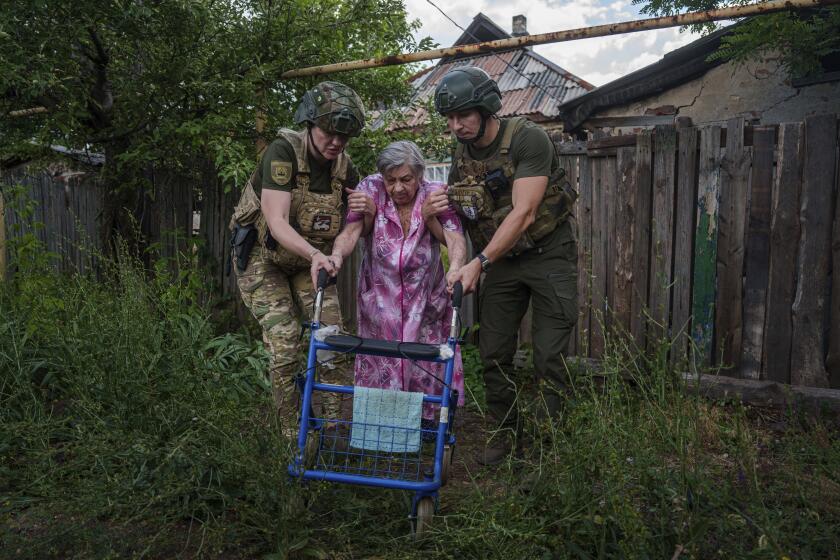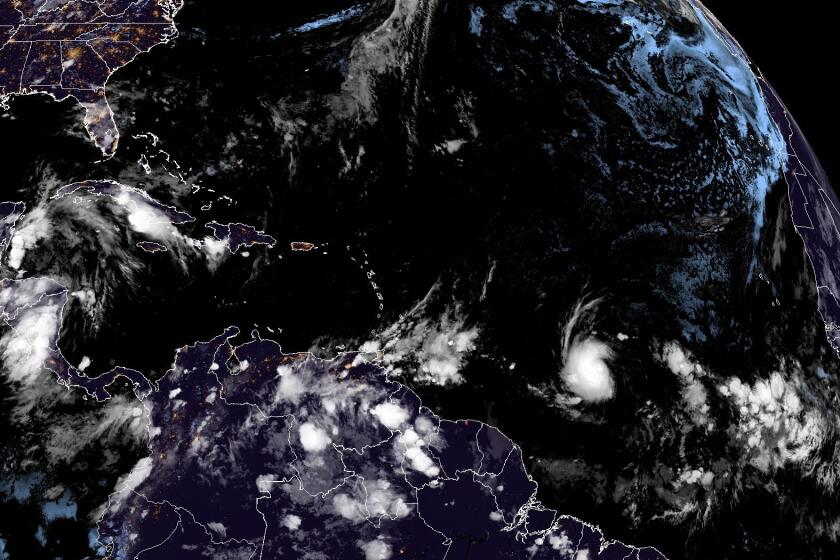Tons of Czech Explosive Sent to Libya, Havel Says
The deposed Communist regime in Czechoslovakia shipped 1,000 tons of Semtex high explosive to Libya, or enough to keep terrorists in bombs for 150 years, President Vaclav Havel revealed here Thursday.
“And the absurd side of the matter is that Czechoslovakia didn’t even make money on it,” added the longtime dissident who became his country’s chief of state last December after the so-called velvet revolution, which overthrew 41 years of Communist rule.
“It was not done for money,” Havel told a news conference at the Czechoslovak Embassy during a state visit. “It was done under political orders that came from above to sell Semtex abroad.”
Havel’s remarks are believed to be the first public acknowledgement by a Czechoslovak official that the previous regime had knowingly supplied Semtex to Libya. It was also the first official statement on the extent of its exports.
Semtex is a yellowish plastic explosive designed for industrial use. Similar explosives are now manufactured in other countries, as well, but Semtex, made exclusively in Czechoslovakia for at least the last 20 years, is often described as the best such explosive in the world.
It is manufactured at a plant in Semtin, about 60 miles outside Prague, which is said to produce 100 tons of the explosive annually.
Terrorists favor it because it is odorless and therefore virtually impossible to detect with sniffer dogs or conventional inspection equipment. It is extremely pliable and therefore easily concealed. And it is a stable substance, with a long shelf life.
While investigators have never cited Semtex specifically, it was a Semtex-type explosive concealed in a radio-tape recorder that brought down Pan American Flight 103 over Lockerbie, Scotland in December, 1988, killing all 259 passengers and crew on board, as well as 11 people on the ground.
Havel said Thursday that only 200 grams of Semtex is sufficient to sabotage an airplane, and that therefore the 1,000 tons shipped to Libya by his Communist predecessors means “world terrorism has supplies of Semtex to last 150 years.” He added that his government is “unable to make Libya return the Semtex.”
The Libyan regime of Col. Moammar Kadafi is considered the major supplier of high explosives to various terrorist groups. Two tons of Semtex was discovered by French authorities in 1987 on board a Libyan freighter bound for Ireland.
Semtex has been blamed in a number of attacks on British troops by Irish Republican Army hit squads, and the authorities here say that the republican organization has taken delivery of at least another two tons of Semtex from Libya.
Havel said that Czechoslovakia stopped exporting Semtex “some time ago”--reportedly in 1988--and that it plans to introduce some agent that will give the explosive a telltale odor. It has urged manufacturers of similar products to do the same.
“Often it is difficult to tell if an explosive was Semtex or something else,” Havel told newsmen. As a result, he added, “it also happens that terrorist actions using explosives from other countries are blamed on Czechoslovakia.”
Asked why Czechoslovakia did not unilaterally cease manufacturing the product, he said it was “necessary for various industrial purposes. It’s not an explosive made exclusively for terrorism.”
Michael Zantovsky, Havel’s spokesman, subsequently clarified that the Czechoslovak president was not only talking about sales to Libya when he referred to the lack of Semtex profits.
“We have supplied it to all Warsaw Pact countries--and not at market prices, either,” Zantovsky said.
Reviewing a 90-minute meeting with British Prime Minister Margaret Thatcher on Wednesday, Havel told journalists that their differences of opinion regarding future security arrangements in Europe were “not as great as we previously thought.”
Czechoslovakia has called for the gradual elimination of all European military blocs, including the North Atlantic Treaty Organization, of which Britain is a staunch defender.
Havel said Thursday that given NATO’s acknowledged contribution to defending Western democracy, he does not envision that the dissolution of the blocs would be symmetrical.
However, he insisted, NATO was the product of a “divided Europe” and will ultimately have to go. He said he envisages NATO and the Warsaw Pact gradually merging into a new, common security system covering the entire continent.
More to Read
Start your day right
Sign up for Essential California for news, features and recommendations from the L.A. Times and beyond in your inbox six days a week.
You may occasionally receive promotional content from the Los Angeles Times.






